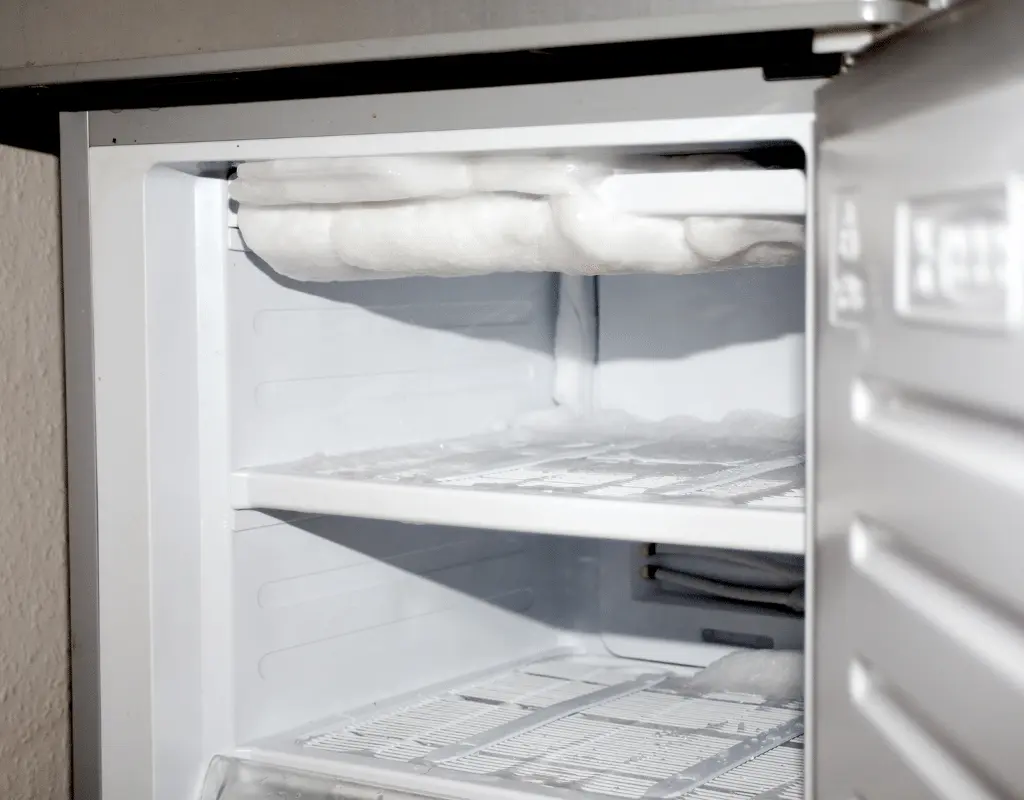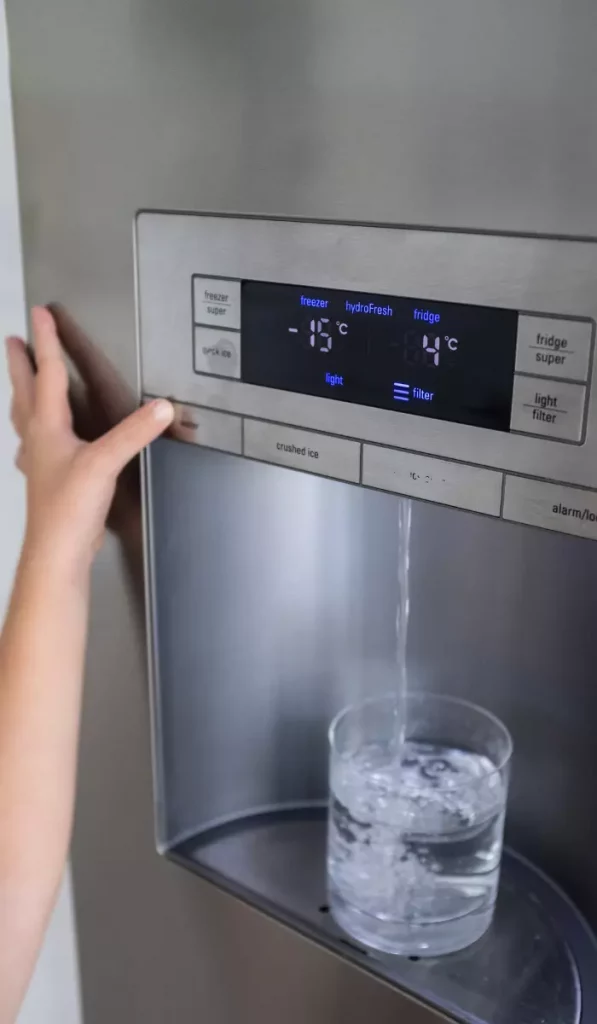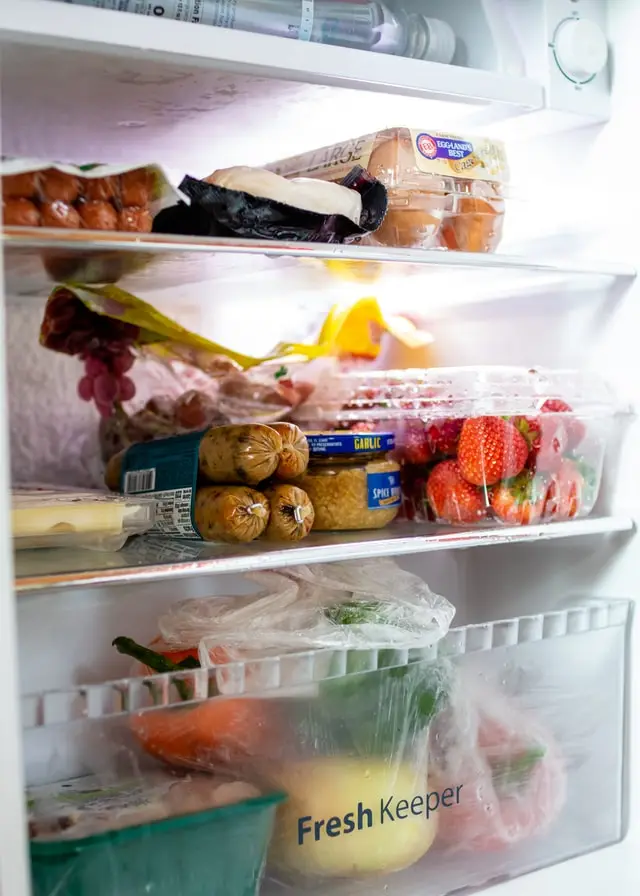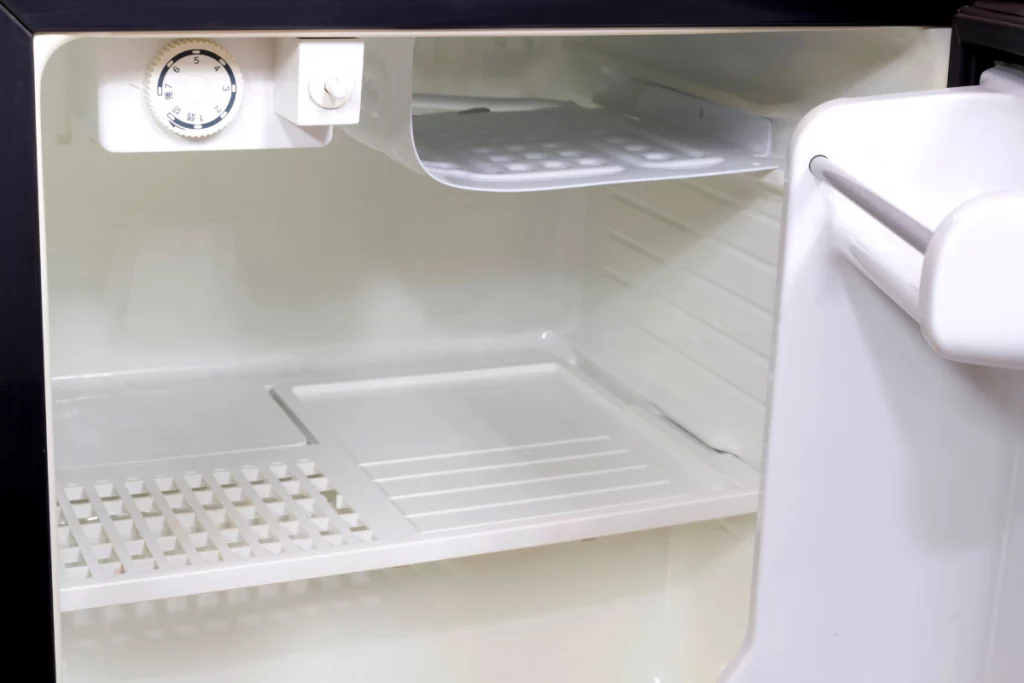Freon has been a commonly used refrigerant for many appliances, including mini fridges. However, regulations and the environmental impacts of Freon have led manufacturers to explore alternative refrigerant options. For those who own or are considering purchasing a mini fridge, understanding whether the appliance contains Freon is important.
Mini fridges produced before 2010 may contain Freon, as its usage was more common at that time. Since then, the Environmental Protection Agency (EPA) has implemented a gradual ban on Freon, pushing manufacturers towards utilizing less harmful refrigerants in their products. As a result, modern mini fridges made after 2020 typically do not contain Freon, and instead employ safer alternatives.
Key Takeaways
- Mini fridges made before 2010 may contain Freon, while newer models generally do not.
- The EPA’s gradual ban on Freon has led to the adoption of less harmful refrigerants in mini fridges.
- Recognizing whether a mini fridge contains Freon and understanding potential leaks can help ensure safety and proper maintenance.

Do Mini Fridges Have Freon?
Mini fridges, like other cooling appliances, rely on refrigerants to maintain their cooling abilities. Traditionally, Freon was a common refrigerant found in many cooling appliances, including mini fridges. However, regulations in recent years have changed the types of refrigerants used in these appliances.
In 2010, the Environmental Protection Agency (EPA) imposed a ban on the production, manufacturing, and use of Freon for new appliances in the United States. As a result, mini fridges produced after 2010 likely do not contain Freon as their refrigerant.
Instead of Freon, many mini fridges and other cooling appliances now use alternative refrigerants that are more environmentally friendly. One example is R-410A, which has replaced the previously common R-22 (also known as HCFC-22 or Freon) in many appliances.
It is essential for consumers to be aware of the type of refrigerant used in their mini fridge, as this can impact maintenance and repair. For instance, adding refrigerant to a mini fridge may require the assistance of a professional technician, particularly if the fridge contains Freon.
In summary, while some older mini fridges may still contain Freon, newer models are more likely to use alternative refrigerants due to changing regulations and environmental concerns. Knowing the type of refrigerant used in a mini fridge is important for proper maintenance and repair.
Concept of Freon
Freon, a term commonly used for a group of refrigerants known as Chlorofluorocarbons (CFCs), has been widely used in the past for cooling appliances like refrigerators and air conditioners. It is a colorless gas, often referred to as R-22, which is formed as a combination of methane, ethane, and propane, containing chlorine, fluorine, and carbon.
However, Freon has been found to be harmful to the environment, specifically causing damage to the Earth’s ozone layer. International efforts to reduce the use of Freon and other ozone-depleting substances, such as the Montreal Protocol, have led to the development and adoption of more environmentally friendly alternatives.
Modern mini-fridges made after 2020 have largely replaced Freon with these less harmful refrigerants. Manufacturers are now using alternative refrigerants like R-134a and R-600a, which offer better efficiency, reduced environmental impact, and improved safety.
While it’s essential to be aware of the potential presence of Freon in older mini-fridges, the good news is that the industry is making progress in moving away from Freon and other harmful refrigerants. Shifting towards eco-friendly alternatives helps contribute to a more sustainable environment for future generations.

How To Know if Your Mini Fridge Contains Freon
Determining whether your mini fridge contains Freon can be essential for various reasons, including environmental concerns and health implications. Freon, a refrigerant found in older refrigeration systems, has been largely phased out in recent years due to its contribution to ozone depletion. Modern mini fridges typically use alternative, environmentally friendly refrigerants.
One way to determine if your mini fridge contains Freon is by checking its age. If your mini fridge is over a decade old, there’s a higher likelihood that it uses Freon as its refrigerant. Newer models are less likely to contain Freon, as safer alternatives have become the standard.
Another method is to examine the evaporator within your mini fridge. You can locate the evaporator near the evaporator fan, remove its cover, and let the fridge run for a short period at proper temperature settings. If frost appears on the evaporator, it may indicate the presence of Freon. However, a lack of frost could also signify a clogged refrigerant line or low refrigerant levels.
Lastly, you can consult the label, manual, or any documentation provided by the manufacturer at the time of purchase. These materials usually contain information about the refrigerator’s specifications and the type of refrigerant used. If you’re unable to locate this information, contact the manufacturer using the model number found on your mini fridge; they should be able to provide the required details.
In conclusion, while determining if your mini fridge contains Freon can be essential for various reasons, it’s important to remember that newer models typically use alternative refrigerants which have a lower environmental impact. If you discover that your mini fridge does contain Freon, consider consulting a technician to explore your options for replacement or upgrading to a newer model.
How Do You Know if Your Mini Fridge Is Leaking Freon?
A mini fridge, like any other refrigeration appliance, utilizes a refrigerant like Freon to keep the interior cool and preserve food and beverages. Detecting a Freon leak in your mini fridge is essential for maintaining its efficiency and ensuring the safety of your environment. Here are some signs to be aware of:
The first sign that your mini fridge might be leaking Freon is if the temperature inside isn’t as cold as it should be. If you notice that your food and drinks are not being preserved properly and the fridge is struggling to maintain a consistent temperature, this could indicate a problem with the refrigerant.
Another indicator of a possible Freon leak is an unusual chemical smell emanating from your mini fridge. Freon itself is odorless, but when it comes into contact with moisture in the air, it may produce an unpleasant and strong smell. If you notice this odor around your mini fridge, it’s essential to address the issue immediately.
The presence of an oily substance around your fridge can also be a sign of a Freon leak. If the Freon tank has been punctured, it can cause the refrigerant to leak out and leave a residue. Checking for any wet or oily patches around the exterior of the mini fridge can help you identify a potential leak source.
In some cases, a Freon leak might cause a hissing sound from the mini fridge. This noise may be the refrigerant escaping through a punctured line, and it is essential not to ignore it.
To maintain the efficiency and safety of your mini fridge, it’s important to be vigilant for these signs of Freon leakage. If you suspect that your appliance is leaking refrigerant, contacting a professional technician for inspection and repair is the best course of action. This will help prevent potential damages to your mini fridge and ensure its longevity in serving your cooling needs.

Freon Replacement in Mini Fridges
In the past, mini fridges often used Freon as the primary refrigerant. However, modern mini fridges manufactured after 2020 have largely replaced Freon with more environmentally-friendly alternatives, such as R-410 or other less harmful refrigerants.
If a mini fridge still contains Freon and needs a refrigerant refill, it is essential to do so with the appropriate safety measures or consult a professional. Adding refrigerant to a mini fridge is not a simple do-it-yourself task, as it requires special tools, skills, and safety precautions.
In some instances, a mini fridge may experience a punctured Freon line, leading to a refrigerant leak and a loss of cooling capabilities. A punctured Freon line can pose a health risk due to the Freon gas used in refrigeration systems. If this occurs, it is essential to address the issue promptly by repairing the damaged line or replacing the mini fridge if necessary.
When replacing a mini fridge or updating its refrigerant system, it is crucial to opt for environmentally friendly products that reduce greenhouse gas emissions and contribute less to ozone depletion. The shift towards more eco-conscious refrigerant options signifies a positive change in the industry, ensuring safer and more sustainable cooling solutions for the future.
Conclusion
Mini fridges, like their larger counterparts, typically rely on refrigerants to maintain their cooling efficiency. One commonly used refrigerant is Freon, also known as R-22. However, it is essential to understand that the Environmental Protection Agency (EPA) has ordered a ban on Freon due to its harmful effects on the environment.
Despite the ban, some older mini fridges may still contain Freon, while newer models are likely to use alternative refrigerants that are more environmentally friendly. These modern refrigerants offer similar cooling properties to Freon, ensuring that mini fridges continue to function efficiently and effectively.
Though it is possible to add Freon to a mini fridge, it is not recommended, mainly because of environmental concerns and potential complications during the process. Instead, it is better to consult a professional technician if a mini fridge is not working correctly, as they can assess the issue and determine the appropriate steps or alternatives to take.
In summary, while mini fridges may have employed Freon in the past, updated regulations and an increased awareness of environmental impacts have led manufacturers to use alternative refrigerants in newer models. As a result, consumers can enjoy the convenience of mini fridges without causing harm to the environment.




